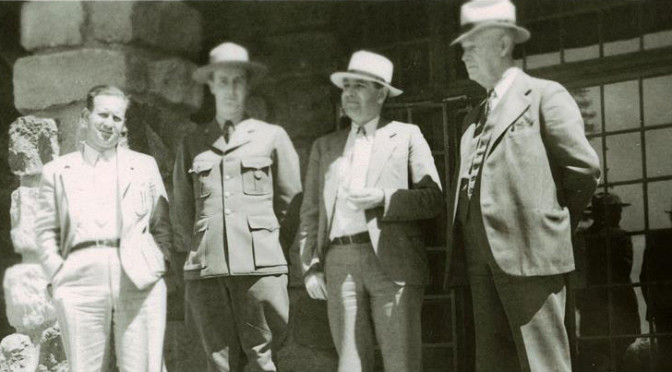To the reader:
Lawrence C. Merriam is an emeritus professor of forestry at the University of Minnesota, though he continues to teach at Oregon State University on a courtesy appointment. He never worked at Crater Lake, but his father served as regional director in San Francisco from 1950-1963. His grandfather, John C. Merriam, has probably exercised the single greatest influence on the formation of the park’s educational program.
This interview took place in Corvallis represents the first of many visits with Dr. Merriam. One of the themes emphasized on the following pages was his work with the state of parks in Oregon. He has since published Oregon’s Highway Park System 1921-1989: An Administrative History and we have collaborated on other work involving wilderness, his grandfather, and the John Day Fossil Beds.
Stephen R. Mark
(Crater Lake National Park Historian)
May 1995
We’ll begin with some general questions. Where did you grow up and what is your educational background. How did your father and grandfather influence that education?
I was born here in Oregon. My family moved to California when I was young. I went all the way through to my bachelor’s degree in the California school system getting my degree, a Bachelor of Science in forestry at Berkeley in 1948. Then I came to Oregon and worked with the state parks for a while. I did my masters and Ph.D. work at Oregon State, finishing in 1963.
My father and my grandfather were very influential in my education for a number of reasons. One was, of course, that when I was young I used to go around with them a bit and see some of the places that they were interested in such as the redwoods. We lived in Yosemite during the 1930’s. There I got very interested in the parks, not just the fishing and so on, but developed an interest in how they were created and managed. My grandfather was with us in 1940 and spent time with me. We talked about the relationship of Yosemite to the larger picture of National Park. He was very much interested in the protection of nature and is probably best known for working in the redwoods. He suggested that keep a journal. I didn’t do that partly because I was just a young kid. A little later, I went off to serve in the Second World War. It wasn’t until many years later that I began to realize the importance of keeping a record of the kinds of things that I was doing every day as grandfather suggested. I still do that.


